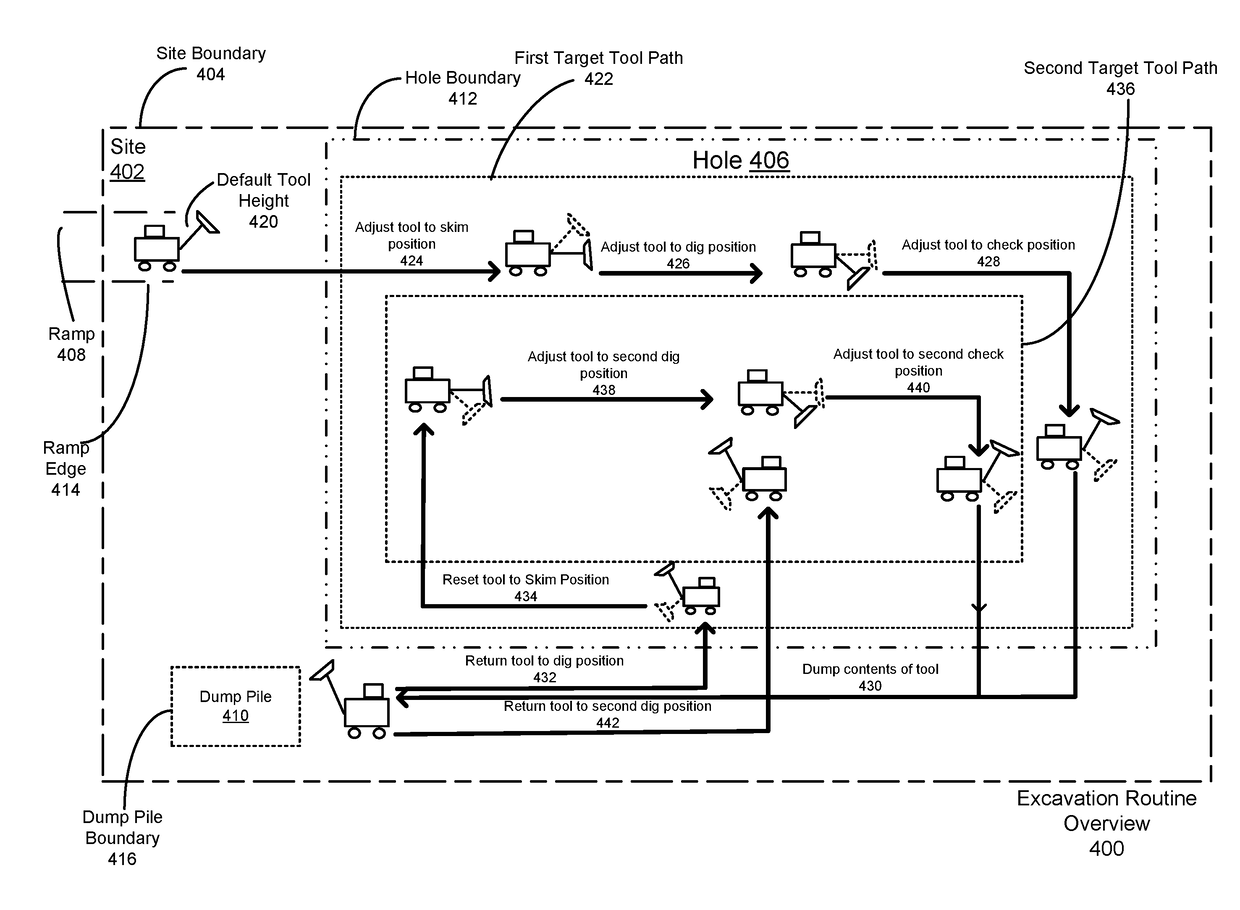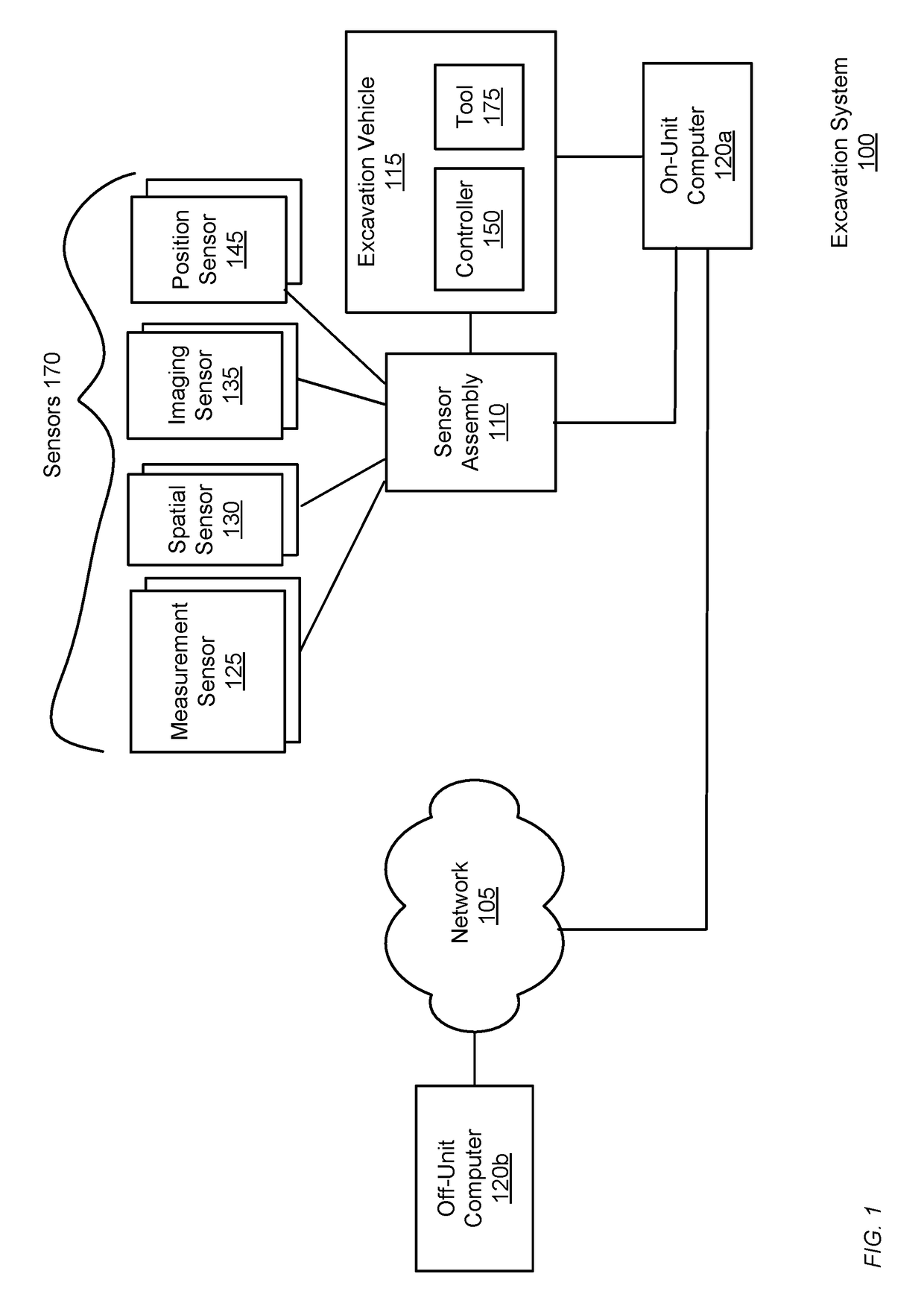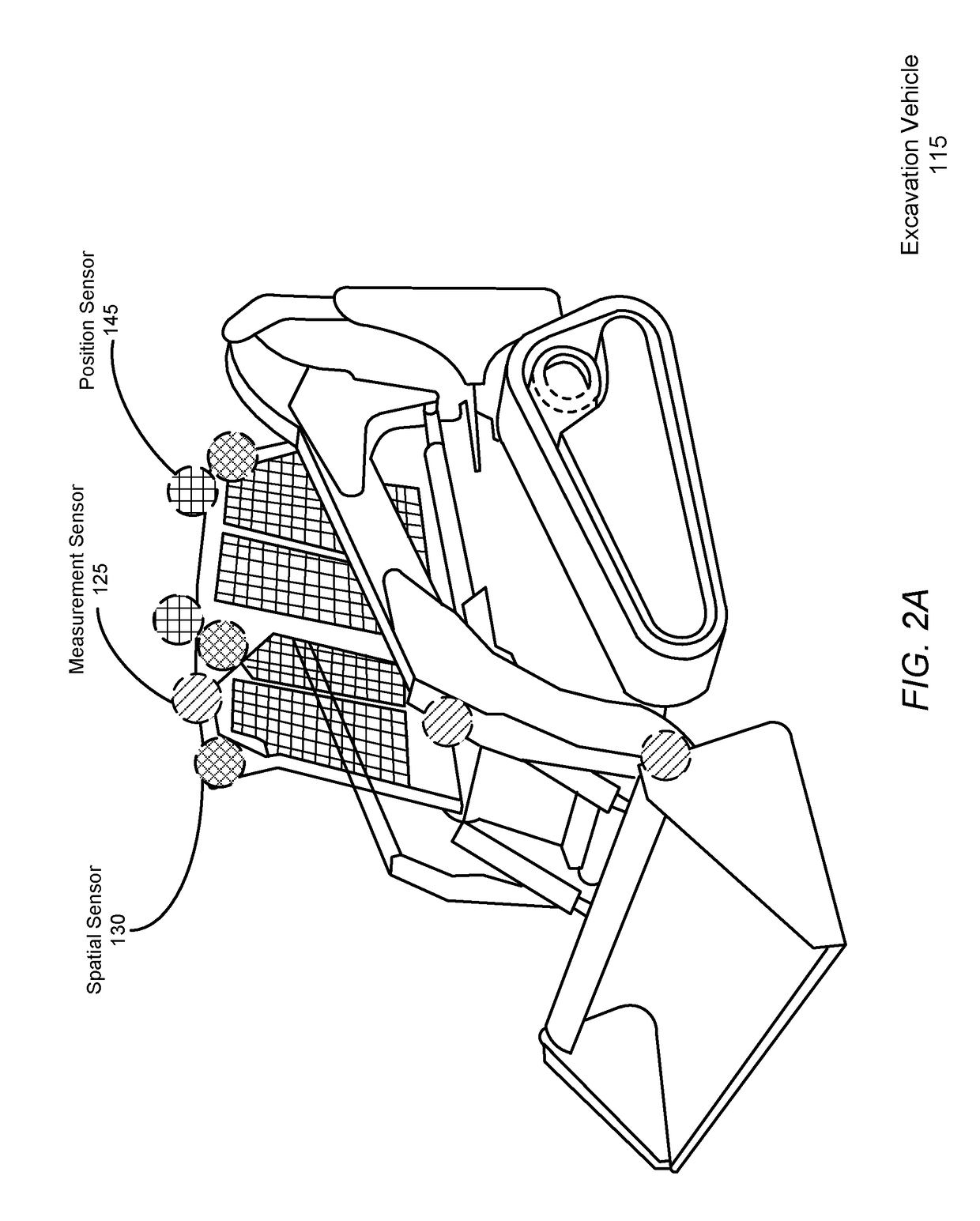Mapping a Dig Site Diagram
a dig site and diagram technology, applied in the field of mapping a dig site, can solve the problems of prolonging the duration of excavation projects, insufficient labor force skilled enough to meet the demand for operating these vehicles, and high cost of excavation vehicles, so as to reduce the cost of excavation, reduce the need for manual labor, and increase the efficiency of excavation projects
- Summary
- Abstract
- Description
- Claims
- Application Information
AI Technical Summary
Benefits of technology
Problems solved by technology
Method used
Image
Examples
Embodiment Construction
I. Excavation System
[0024]FIG. 1 shows an excavation system 100 for excavating earth autonomously or semi-autonomously from a dig site using a suite of one or more sensors 170 mounted on an excavation vehicle 115 to record data describing the state of the excavation vehicle 115 and the excavated site. As examples, FIGS. 2A and 2B illustrate the example placement of sensors for a compact track loader and an excavator, respectively, according to example embodiments. FIGS. 1-2B are discussed together in the following section for clarity.
[0025]The excavation system 100 includes a set of components physically coupled to the excavation vehicle 115. These include a sensor assembly 110, the excavation vehicle 115 itself, a digital or analog electrical controller 150, and an on-unit computer 120a. The sensor assembly 110 includes one or more of any of the following types of sensors: measurement sensors 125, spatial sensors 130, imaging sensors 135, and position sensors 145.
[0026]Each of thes...
PUM
| Property | Measurement | Unit |
|---|---|---|
| distances | aaaaa | aaaaa |
| distances | aaaaa | aaaaa |
| depth | aaaaa | aaaaa |
Abstract
Description
Claims
Application Information
 Login to View More
Login to View More - R&D
- Intellectual Property
- Life Sciences
- Materials
- Tech Scout
- Unparalleled Data Quality
- Higher Quality Content
- 60% Fewer Hallucinations
Browse by: Latest US Patents, China's latest patents, Technical Efficacy Thesaurus, Application Domain, Technology Topic, Popular Technical Reports.
© 2025 PatSnap. All rights reserved.Legal|Privacy policy|Modern Slavery Act Transparency Statement|Sitemap|About US| Contact US: help@patsnap.com



